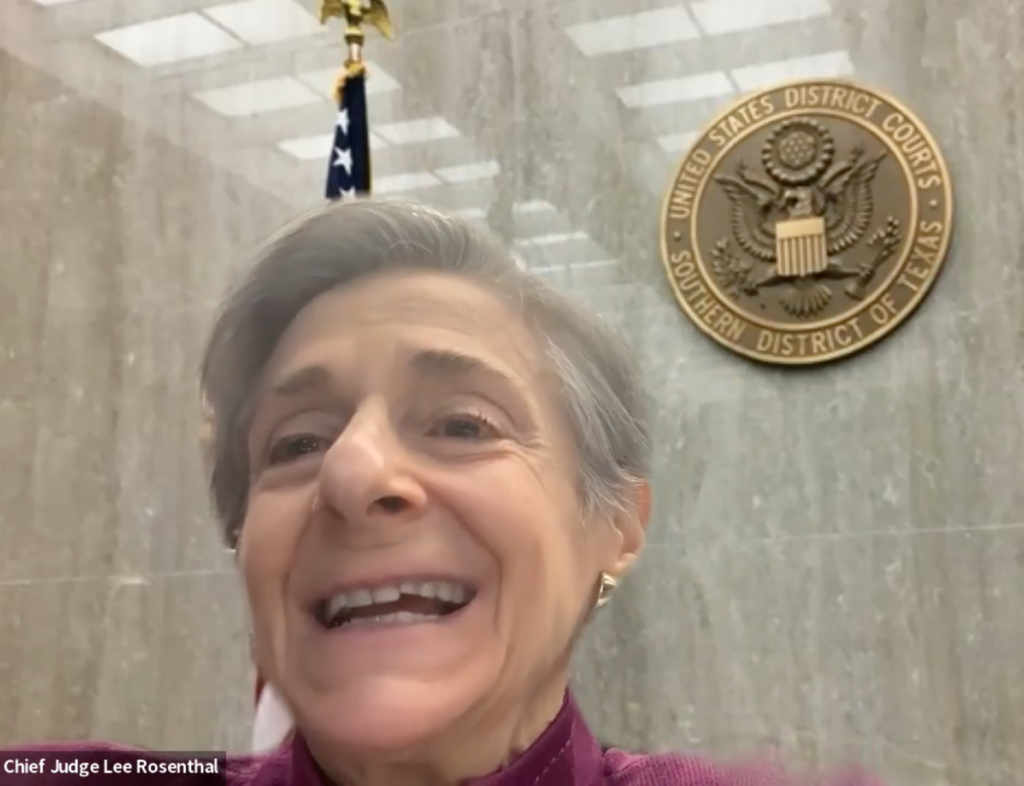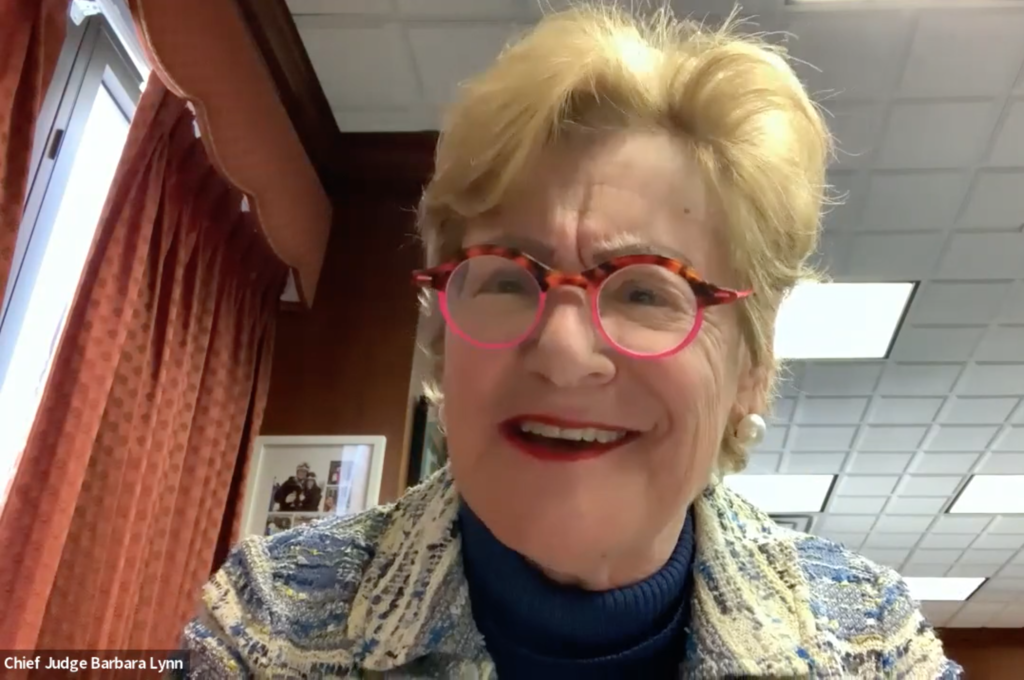Although the Omicron variant has paused jury trials across the state and country, the chief judges of the Northern and Southern districts of Texas said Tuesday they plan to resume jury trials by mid-February.
During a 90-minute webinar over Tuesday’s lunch hour, Northern District Chief Judge Barbara Lynn and Southern District Chief Judge Lee Rosenthal also talked retirement plans (or lack thereof) and courtroom trends from the pandemic.
Judge Lynn’s term as chief judge will be up in September, while Judge Rosenthal’s will be up Dec. 1. Lynn and Rosenthal are the first two women to serve chief judge positions in Texas’ federal courts. Both became chief judge in their jurisdictions in 2016.
“What I do next is what I’ve done throughout. I’ll continue to try cases and I feel very lucky in being able to say after almost 30 years, I love my day job,” Rosenthal said.

Lynn said she plans to retire from the bench in September 2025, and will consider taking senior status in her last few years.
“I’ve been telling everybody and I’m going to say it again right now: Come September 2025, I’m out of here. I’m retiring,” she said.
Although the judges don’t believe the backlog of jury trials in their districts is as bad as anticipated, they said civil trials are suffering more than criminal and that competing trial needs between civil and criminal are likely to materialize in the next month.
“If we’re behind, we’re more behind in our civil cases than we are in criminal cases, but I don’t think it’s as bad as I feared it would be,” Lynn told a 275-person crowd during a Zoom legal seminar sponsored in part by The Texas Lawbook. “I’ve tried quite a few cases and so have a number of my colleagues. Cases have resolved, in part, because of Covid.”

As the pandemic has lingered, Rosenthal said she has noticed a more relaxed approach among litigants, which has led to cases not moving as quickly as they could.
“I am sympathetic to the constraints of Covid, but I’m also concerned that there’s been a kind of relaxation of either efficiency or contact with clients, pressure from clients and work habits that are seeping over our dockets, and we have to strike the right balance between understanding the constraints that people are under … but still not losing some reasonable control over our docket and moving [cases] along.
“Having [cases] set for argument efficiently and early and getting the opinions out, I think, is vital to moving cases that need to be tried either to a mediated resolution or to get them on the docket,” Judge Rosenthal added. “Starting in the latter part of February and going into March, I do think we’re going to have competing trial demands on civil and criminal cases as the criminal cases are mounting. It has to be accompanied by a lot of diligence on the part of every level of judge in the system.”
Although both judges say non-jury Zoom proceedings will continue, neither judge wants to conduct remote jury trials because they doubt jurors will give remotely broadcast cases their undivided attention.
Lynn said she conducted a mock trial over Zoom, and even though all but one mock juror was a lawyer (the exception being her sister-in-law) they still didn’t lend it their undivided attention.
“Everyone else was doing something else during the trial despite my earnest instructions,” Lynn said, “and in fact, someone took their cell phone [that they were using to watch the trial] to 7-Eleven and picked up a snack while the trial was going on.”
